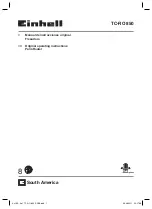
RGS-PR9000 Series User Manual
ORing Industrial Networking Corp
28
is considered valid. The range of valid values is 6 to 40 seconds,
and
Max Age
must be <= (FwdDelay-1)*2.
Maximum Hop Count
This defines the initial value of remaining hops for MSTI
information generated at the boundary of an MSTI region. It
defines how many bridges a root bridge can distribute its BPDU
information to. The range of valid values is 4 to 30 seconds, and
MaxAge must be <= (FwdDelay-1)*2.
Transmit Hold Count
The number of BPDUs a bridge port can send per second. When
exceeded, transmission of the next BPDU will be delayed. The
range of valid values is 1 to 10 BPDUs per second.
Click to save changes.
Click to undo any changes made locally and revert to previously
saved values.
4.4.2 MSTP
Since the recovery time of STP and RSTP takes seconds, which are unacceptable in some
industrial applications, MSTP was developed. The technology supports multiple spanning
trees within a network by grouping and mapping multiple VLANs into different spanning-tree
instances, known as MSTIs, to form individual MST regions. Each switch is assigned to an
MST region. Hence, each MST region consists of one or more MSTP switches with the same
VLANs, at least one MST instance, and the same MST region name. Therefore, switches can
use different paths in the network to effectively balance loads.
Port Settings
This page allows you to examine and change the configurations of current MSTI ports. A MSTI
port is a virtual port, which is instantiated separately for each active CIST (physical) port for
each MSTI instance configured and applicable for the port. The MSTI instance must be
selected before MSTI port configuration options are displayed.
This page contains MSTI port settings for physical and aggregated ports. The aggregation
settings are stack global.
















































